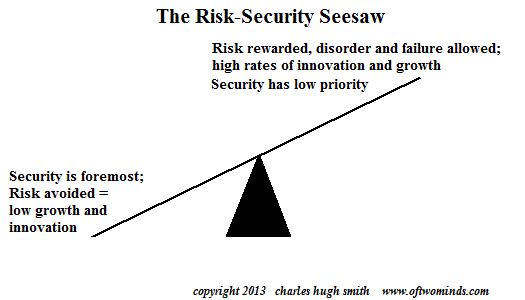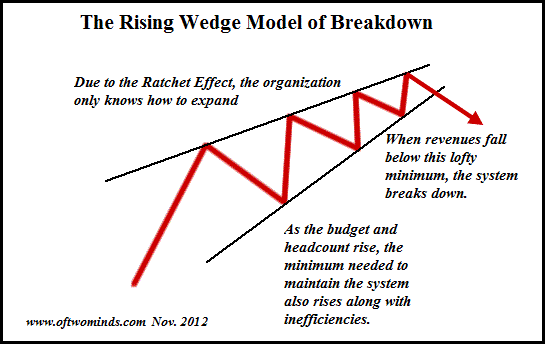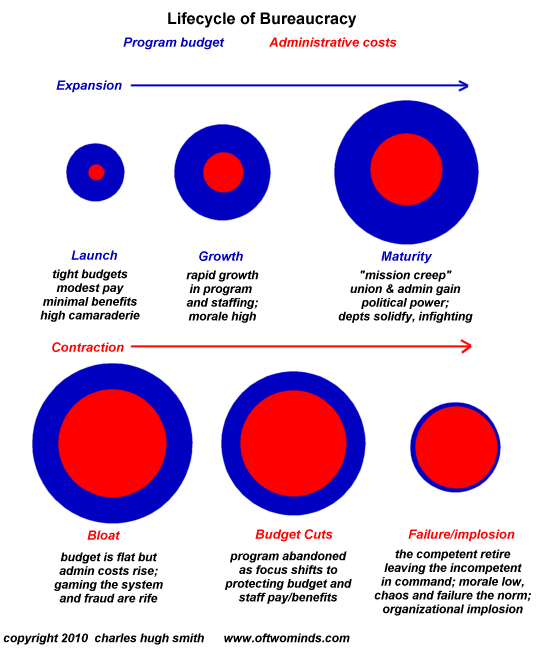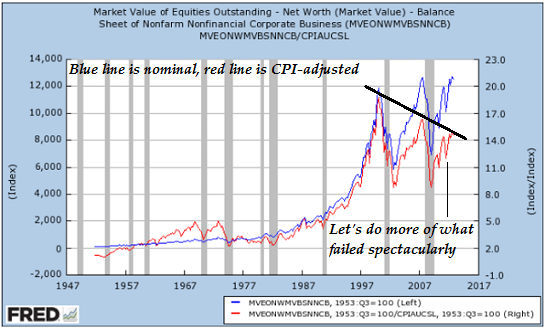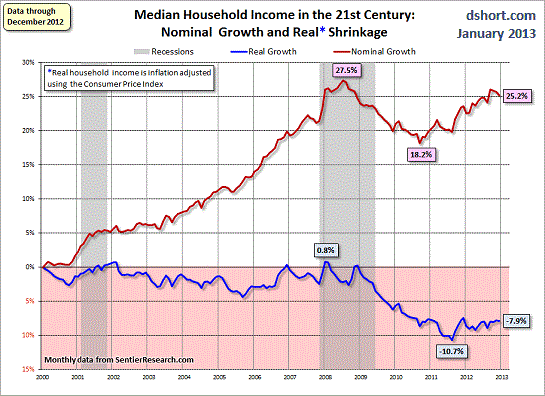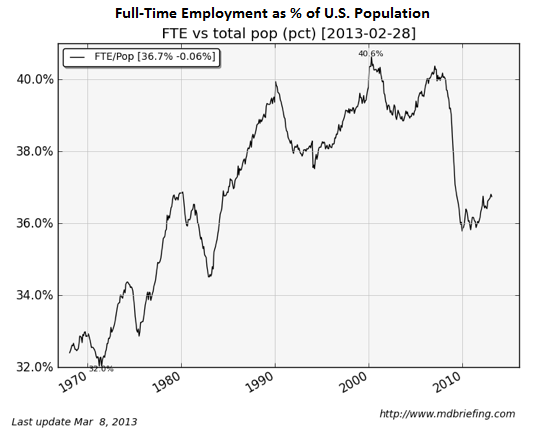Despite the many differences between China and the U.S., their basic problems are remarkably similiar: an economy that increasingly serves a tiny Elite, and a political/financial system that is incapable of meaningful reform.
Setting aside the latest bird flu outbreak and sagging indicators of growth, China 2.0 is in trouble (with 1.0 being the Communist era of 1949 -1977 and 2.0 being the modernization/globalization era of 1978 - 2013), for it remains overly reliant on unsustainable growth dynamics.
The following is my summary of the excellent talks given by Jim Chanos and Michael Pettis at Mish's insight-packed Wine Country Conference in Sonoma earlier this month. (Any errors in presenting the speakers' views are of course mine.)
Here are Chanos' lecture slides and interviews with Chanos and Pettis:
Michael Pettis observed that he'd spent time in Haiti earlier in his career, and pockets of poverty in China today equal those he'd witnessed in Haiti. Experienced China hands know the central government takes pains to limit media exposure of this level of poverty, as it reflects poorly on China's claim to being a superpower.
He then described in some detail how the Chinese leadership has created a "no-win" policy by encouraging a dependence on fixed investment to fuel rapid growth of GDP. If it shifts income to households to enable more consumer spending, GDP growth will decline. But if it continues borrowing and spending on increasingly marginal fixed investments, growth will also slow.
In effect, China has suppressed wages to fuel GDP growth. Financial repression (low interest rates) has further suppressed household income and encouraged misallocation of capital on a vast scale.
Pettis said the Chinese government is pushing a "go west" campaign. While "go west" worked in America's development, it failed miserably in Soviet Russia and Brazil. The difference, he said, is that in America, the private sector moved west and the government simply followed. In China, Russia and Brazil, the government pushed infrastructure west but without private-sector participation. Pettis reported that private sector contractors go west to build the infrastructure and then return east once the work is done.
In Pettis' view, the key metrics are debt and the ability to service debt: if debt is rising but the ability to service that debt (disposable income) is stagnant, then the system is unsustainable. He said this is the case in China: debt is rising but the ability to service that debt is not.
Given the political power of the state-owned enterprises (SOEs), China's political and financial systems do not have self-correcting mechanisms. Such mechanisms require transparency and feedback that is lacking in China.
Pettis flatly stated that the PBoC (China's central bank) is insolvent. Debt levels are high and much of the collateral is impaired.
He also noted that pollution is estimated to shave 3.5% off GDP annually, which means that if the 7% reported GDP growth rate is overstated, as many believe, then actual GDP growth after accounting for environmental damage might well be zero.
Jim Chanos addressed a number of financial and real estate issues. In the last downturn in the late 1990s, he noted, 40% of outstanding loans in China went sour. People in China only have 15 years' experience owning property, and so they have no experience of either a housing crash or long-term maintenance of housing.
One of the attendees asked: since China's population is ageing, doesn't the overbuilding of residential real estate make sense? That is, invest in housing now, anticipating that in 10 years more national income will have to be devoted to caring for the elderly?
Chanos' response was succinct: "Most of the buildings in China won't be livable in 10 years." His point was that the infrastructure required to maintain buildings is undeveloped in China: most highrise residential buildings do not have a functioning common-area expense/maintenance system in place. If the elevator breaks, there is rarely money set aside to fix it or a person responsible for making it happen.
The quality of construction in China, though greatly improved by some accounts, is still sketchy; Chanos said that when a bridge recently collapsed, inspectors found that the reinforcing bars that were supposed to be in the concrete were missing. This might be an extreme example, but the basic point is that much of the money poured into construction over the past decade has not produced a product that will last 50 or 100 years.
Wealthy Chinese people often visit him in New York, Chanos reported, and there is one striking blind spot in their grasp of real estate. None of the visitors are aware that uninhabited buildings decay. The average middle class household in China is sinking all their savings into investment flats, assuming real estate will be a durable store of value, without understanding that these vacant units degrade. At some tipping point, entire buildings could become unlivable as elevators break down, leaks feed mold, etc.
The store of value is a chimera unless the building is actively maintained, but maintenance is not yet part of the culture.
As for the "if we build it, they will come" narrative that underpins the China Bulls' case, Chanos said that there is already 15 square meters of empty space per capita in China, meaning that there is 135 sq. ft. of empty interior area per person in China, and another 10 billion square meters is under construction.
Housing is already astronomically high in terms of the average urban annual income-- the annual cost/income of a flat ratio is higher in China, even in 2nd and 3rd tier cities, than in high-cost locales such as London and New York.
Most of China's populace cannot possibly afford the tens of millions of flats being built or sitting empty.
Chanos also noted that repression is not just financial; China spends more on internal security than it does on its military.
An estimated $2.7 trillion in private wealth has left China in the last decade. This is roughly 22% of China's $12 trillion GDP. What does this say about the leadership's faith in their system?
As a matter of "face" and policy, China's leadership focuses almost exclusively on GDP growth; GDP is the tail wagging the dog, Chanos noted, and it leads to absurdly unproductive allocation of credit and capital to projects that will never earn the cost of that capital.
The easist way to boost GDP is to put a shovel in the ground--build something, anything. That has been China's strategy for 20 years, and it is now yielding diminishing returns.
Add all this up and you get a clear picture of a government and economy that is incapable of making the kind of structural reforms that are needed to make growth sustainable. My conclusion is that despite the many differences between China and the U.S., their basic problems are remarkably similiar: an economy that increasingly serves a tiny Elite, and a political/financial system that is incapable of meaningful reform.
Special "the end of the world as we know it" sale on seeds from our longtime supplier Everlasting Seeds:TEOTWAWKI SALE! 20% OFF!
In light of the calamitous predictions regarding the Global Coastal Event [Clif High], Korean Nuclear tensions, and Solar/EMPs “Kill Shot” {Ed Dames}, we thought we'd offer folks the largest discount we've ever given. We're not 'fortune tellers' here, or Seers, or 'Intuitives': but if even ONE of these predictions come to pass, it'll definitely make for a 'bad hair day' {week/month/year...} for all of us...
Things are falling apart--that is obvious. But why are they falling apart? The reasons are complex and global. Our economy and society have structural problems that cannot be solved by adding debt to debt. We are becoming poorer, not just from financial over-reach, but from fundamental forces that are not easy to identify or understand. We will cover the five core reasons why things are falling apart:
 1. Debt and financialization
1. Debt and financialization
2. Crony capitalism and the elimination of accountability
3. Diminishing returns
4. Centralization
5. Technological, financial and demographic changes in our economy
Complex systems weakened by diminishing returns collapse under their own weight and are replaced by systems that are simpler, faster and affordable. If we cling to the old ways, our system will disintegrate. If we want sustainable prosperity rather than collapse, we must embrace a new model that is Decentralized, Adaptive, Transparent and Accountable (DATA).
We are not powerless. Not accepting responsibility and being powerless are two sides of the same coin: once we accept responsibility, we become powerful.
Kindle edition: $9.95 print edition: $24 on Amazon.com
To receive a 20% discount on the print edition: $19.20 (retail $24), follow the link, open a Createspace account and enter discount code SJRGPLAB. (This is the only way I can offer a discount.)
| Thank you, Ben G. ($50), for yet another supremely generous contribution to this site -- I am greatly honored by your steadfast support and readership. | | Thank you, Jeffrey S. ($5/month), for your outstandingly generous subscription to this site -- I am greatly honored by your support and readership. |
Read more...
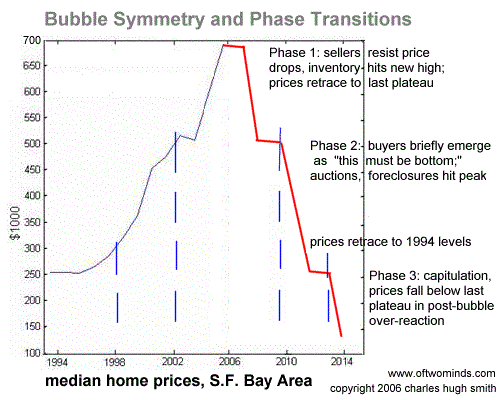
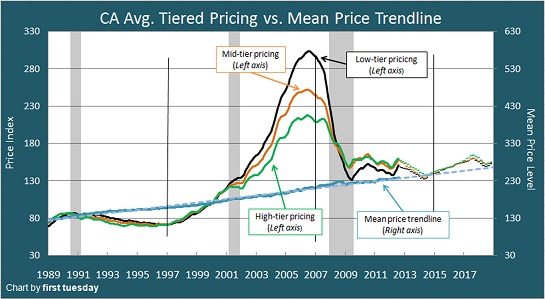
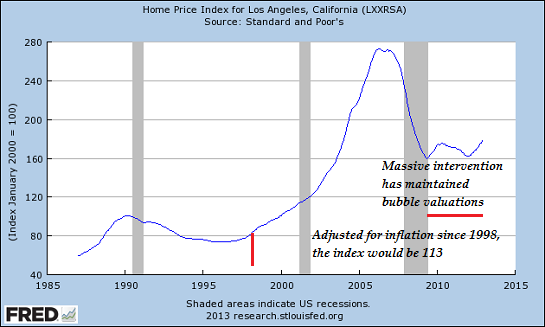
 1. Debt and financialization
1. Debt and financialization



























